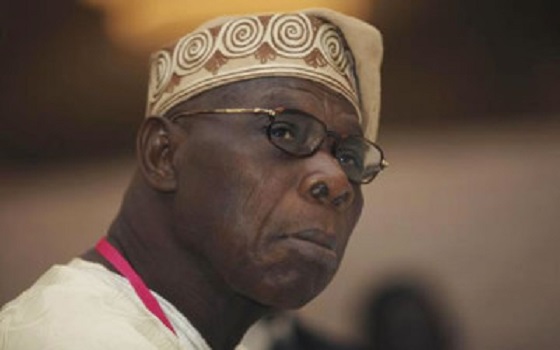Project Manager of the Company, Mr. Etim Abak, on Monday told the Senate Committee on Federal Capital Territory (FCT) that former President, Chief Olusegun Obasanjo, awarded the Abuja Rail Project in 2007 with neither design nor Memorandum of Understanding (MOU).
Abak, who hinted that the contract was signed by the former Minister of FCT, Mallam Nasir el-Rufai, without design and MOU, added that el-Rufai was said to have signed the contract based on uncalculated estimate.
While fielding questions from members of the Senator Dino Melaye-led Committee when they undertook oversight assignment to the project site, Abak further disclosed that it was carried out based on what he simply identified as conceptual design.
These were even as the Committee discovered that the contract, which stood at 60.67 kilometres, was inflated by $10 million per kilometres even as the length, was later reduced to 45 kilometres without refund of the cost for the 15.67 kilometres dropped.
“The contract was awarded based on conceptual design and estimates were not properly done. There was no formal design submitted and rail bridges and crossover bridges were not captured in the contract,” Abak told the Committee.
Chairman of the Committee, Melaye, while speaking at the site, said his research showed that rail project was inflated by over $10 million per kilometre, wondering why such corrupt act was perpetrated by the handlers of the project.
While noting that the contract sum was $841.645,898 and project completion period was 48 months, while the scope of work was 60.67 kilometres standard gauge, with double railway tracks and associated permanent way within FCT, Melaye said the whole project was shrouded in fraud.
He wondered why the project, which length initially stood at 60.67 kilometres, was later reduced to 45. 245 kilometres without reduction in the cost of the project initially paid for.
The Committee, therefore, demanded the refund of the sum of $195,878,296.74, being the amount for the 15.67 kilometres cut out, from the Chinese firm (CCE) handling the project.
‘Now, you have reduced the length of the kilometre standard gauge from 60.67 kilometres to 45.245 kilometres. Meanwhile, there is no concomitant reduction if you juxtapose the length of kilometres and the reduction in terms of the cost.
“If we are to spend $841 million for 60.67 kilometres and now you have reduced to 45.245 kilometres and the only reduction in terms of monetary value is from $841.6 million to $823 million and with reduction of just about $17 million, that to me is not commensurate to the reduction in terms of length.
“The Federal Government has so far invested $31.5 billion and another $7.6 billion from the SURE-P fund and if you put these together, we have altogether $39.1 billion invested in the rail project, leaving the balance of $113. 233,155.32.
“The sum of $3 billion proposed in the 2016 national budget of the FCT for the rail project.
“If you look at this, I would want to say that I did a personal research and looked at rail construction of the same specifics, of the same technology across the globe and one cannot but complain that this railway project in Nigeria is on a very high side,” Melaye said.
He wondered why it was costing the Federal Government so much to construct a railway of just 45 kilometres unlike the construction of the same specifics across the globe.
He questioned the rational behind the government’s loan of $500 million from EXIM Bank of China for the project, saying the money the Federal Government had so far injected into the project was far enough to execute the entire project.
“From my own calculation, in fact, from my comparison with other rail projects across the world, the Federal Government investment in this project is enough to execute the project without taking a loan as high as $500 million from China,” he added.
Melaye, who spoke further said: ”From our research and it’s very simple, the world is now a global village. As you are sitting here now, on your phone you can Google, even in India and Egypt. Fortunately, one of those projects in Zambia was also done by this same company, CCE.
“We have six countries and the average cost per kilometre, non is above four million dollars per kilometre. Why is the Nigerian project is costing 13.8 approximately $14 million per kilometre?” he asked.
–
Source: http://theunion.com.ng/news/obasanjo-awarded-abuja-rail-project-without-design-mou/







